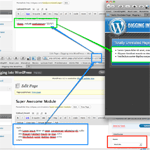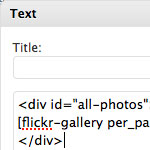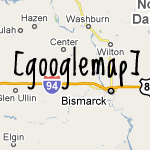Posts tagged: shortcode

Shortcode to Display Recent Posts on Any Post or Page
WordPress provides a widget that can be used to display recent posts in any sidebar or widgetized location. Likewise many WordPress themes provide some sort of “recent post” functionality, so users can display their latest posts in specific locations around the theme. Such functionality is great and useful for displaying recent posts just about anywhere in your theme. Problem is, those methods don’t work for displaying recent posts inside of posts, pages, and custom post types. Like inside of post content itself. For that, we can use a shortcode.

Popular Posts Shortcode
In my recent post, DIY WordPress Popular Posts, I share a simple, two-step technique for tracking and displaying popular posts on your WordPress-powered site. That post describes everything needed to fully implement DIY popular posts, but some folks wanted an easier (more convenient) way to display the list of popular posts on the front-end (instead of using template code).

Pro Version of Block Bad Queries
BBQ Pro is the premium version of my free security plugin, Block Bad Queries. BBQ Pro helps keep your WordPress-powered site safe and secure by blocking bad URI requests. This helps to conserve precious server resources like memory and bandwidth. BBQ Pro runs silently in the background, checking all incoming traffic and blocking any URI requests that contain nasty stuff like eval(, base64_, and other malicious nonsense. It’s advanced firewall protection that’s fast, flexible, and fully customizable.

SES Pro – Ajax Powered Email Signup Forms
SES Pro is a premium email newsletter plugin for WordPress. It is 100% shortcode-based with Ajax-powered signup forms that can be displayed anywhere. There are no monthly fees or limits on the number of subscribers, how many emails you can send, or anything else. It’s just a lightweight yet full-featured email-signup plugin that’s super-easy to use — a great alternative for independent, DIY WordPress enthusiasts who want to rock their own email signup forms.

Speed Up Your Blogging with WordPress Shortcodes
Shortcodes are WordPress’ way of creating shortcuts for code snippets, strings of text, or anything else that you need to display on your site. So this means that you can save time by replacing your most commonly typed words and phrases with WordPress shortcodes. For example, if you are frequently typing your blog’s URL, you could place the following code your theme’s functions.php:

Shortcode for Includes
One thing that WordPress doesn’t have the ability to do “out-of-the-box” is do includes, in the sense of including the content of one post into the content of another post directly in the post editor. For the umpteenth time around here, shortcodes to the rescue!
This issue came up while my co-worker Tim at Wufoo was documenting parts of the latest Wufoo API. Some of the API pages have areas on them that are exactly the same as other pages. For example, we were finding entire chunks of navigation that were linking to alternate pages of documentation.

Add Private Content to Posts via Shortcode
Recently, WP-Mix posted an incredibly useful technique that uses a shortcode to add private content to blog posts. This functionality makes it easy to manage leftover data, miscellaneous notes and other communication by keeping everything together with its corresponding post. Consolidating information like this helps to streamline flow and organization into the future.

Shortcodes in Widgets
I had occasion the other day to run a shortcode inside of a text widget. You know shortcodes… we talk about them all the time. They are keywords in [square_brackets] that do something special.
Sometimes they do something really simple like return a string (so you can have a global location to customize some string of text, for example), or they do something more complicated like call a plugin that does something fancy like build a photo gallery.

Custom Query Shortcode: Run a Loop inside Any Post/Page
I had the occasion yesterday to have a page with a section on it where it would output a very specific set of other pages, which would need to change dynamically. What I could have done is built a special page template for this page, and inside that template run a query_posts() to get these posts. But I wanted this page to remain editable from the admin. Besides, creating a special page template every time you need to do something like this is too cumbersome. WordPress is extensible enough to do better.

Google Maps Shortcode
David Hollander of SparkWeb Interactive sent us in a little code clip for inserting Google Maps into Posts/Pages by the use of shortcodes. Google actually has copy-and-pastable iframe code already in Google Maps that is really easy to snag, but David was having problems with the Visual text editor screwing up the code when saving the Post. With a short code, no problem.

Easy Shortcode Permalinks
When you are building a theme, and the circumstance comes up where you need to create a link to a specific page hard-baked right into the theme, there is a function you should be using.

Global Custom Fields
Custom fields allow us to attach data to Posts or Pages that we can yank out and use at will in our templates. They are awesomely flexible and single-handedly allow WordPress to be used for about any CMS need. The fact that they can only be used on single Posts can be limiting in some circumstances. Sometimes you wish you could grab a custom value that you can control and is consistent globally, regardless of the current post. In this post we’ll look at a technique to do so.







